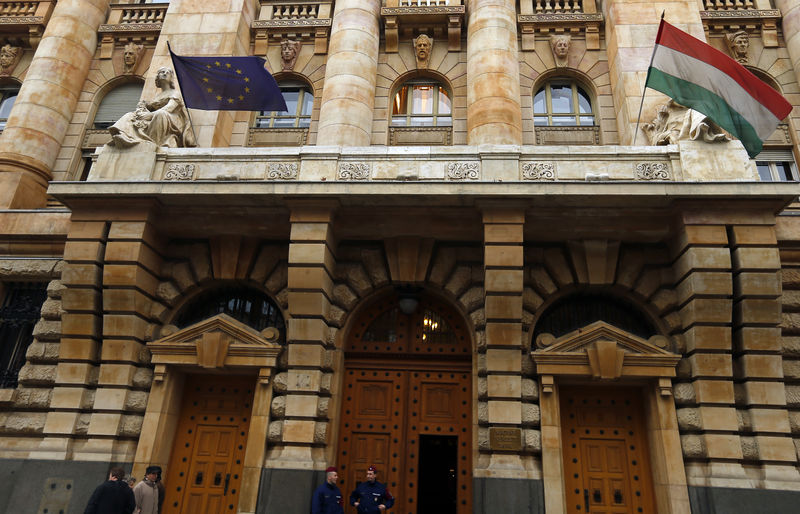By Gergely Szakacs and Krisztina Than
BUDAPEST (Reuters) - Hungary's central bank is expected to put off raising its overnight deposit rate after the European Central Bank reversed its course on policy because of sluggish inflation in the euro zone, Hungary's main trading partner.
Mario Draghi, the head of the ECB, said on Tuesday the central bank was prepared to cut rates or resume bond purchases if the inflation doesn't improve.
All 15 analysts in a June 14-19 Reuters poll forecast the base rate would remain 0.9% when the National Bank of Hungary meets on June 25, when it also provides the key forecasts from its quarterly inflation report.
The June meeting had been considered a possible occasion for the bank to tighten further in the face of rising inflation, after raising its overnight deposit rate by 10 basis points in March, ending nearly seven years of monetary easing.
But those expectations have diminished after the ECB's about-face and the U.S. Federal Reserve's signalling possible rate cuts over the rest of the year.
"The dilemma is what will happen to inflation in the longer run," said analyst Daniel Bebesy at Budapest Fund Management. "If there is a global slowdown and a deflation story in the euro zone, then the NBH will probably hold off on any meaningful tightening until there is more clarity on how these unfold."
In contrast with last month's unanimous call for no change, economists in the June survey were divided over the prospect of another increase in Hungary's -0.05% deposit rate, with nine of 14 analysts saying the rate would stay flat.
The remaining five economists pencilled in a 10-basis-point increase, which would end more than three years of negative rates in Hungary.
Core inflation rose to the top of the bank's 2% to 4% target range in May, but it has been relaxed about near-term price developments, saying inflation would hover around its target in the coming quarters.
"The dovish shift in the ECB's communication and the rising likelihood of easing make it more likely that the NBH will bide its time and wait to see how the ECB moves in the coming months," said analyst Eszter Gargyan at Citi.
Analysts foresee Hungary's inflation rate reaching 3.45% this year, slipping to 3.2% next year and dropping to the mid-point of the central bank's 3% target range in 2021.

Those projections are somewhat higher than the bank's March forecasts for the first two years, but both surveys expect inflation will return to target by 2021.